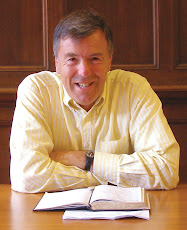Hume on religion: extracts from the Natural History of Religion 1757, 1777.
12.5
Such are the doctrines of our brethren the Catholics. But to these doctrines we are so accustomed, that we never wonder at them: Though in a future age, it will probably become difficult to persuade some nations, that any human, two-legged creature could ever embrace such principles. And it is a thousand to one, but these nations themselves shall have something full as absurd in their own creed, to which they will give a most implicit and most religious assent.
14.7
Hence the greatest crimes have been found, in many instances, compatible with a superstitious piety and devotion: Hence, it is justly regarded as unsafe to draw any certain inference in favour of a man’s morals from the fervour or strictness of his religious exercises, even though he himself believe them sincere.
15.6
Survey most nations and most ages. Examine the religious principles, which have, in fact, prevailed in the world. You will scarcely be persuaded, that they are any thing but sick men’s dreams:
15.7
Hear the verbal protestations of all men: Nothing so certain as their religious tenets. Examine their lives: You will scarcely think that they repose the smallest confidence in them.
15.9
No theological absurdities so glaring that they have not, sometimes, been embraced by men of the greatest and most cultivated understanding. No religious precepts so rigorous that they have not been adopted by the most voluptuous and most abandoned of men.
For more of Hume visit http://www.davidhume.org/
skip to main |
skip to sidebar

Check for older posts at the bottom of the page
Analysing the current relationships between the UK state and religion and suggesting how they might be modernised.
Search This Blog
New Book
MONARCHY, RELIGION AND THE STATE:
Civil religion in the UK, Canada, Australia and the Commonwealth
By Norman Bonney,
Manchester University Press, October 2013
Advance online order deals with Amazon and Blackwells
There will be no miracles here
Scottish artist Nathan Coley translated the words used in a seventeenth century royal proclamation in a French town believed to have been the site of frequent miracles.
Dean Gallery Edinburgh
Dean Gallery Edinburgh
Related Links

Check for older posts at the bottom of the page